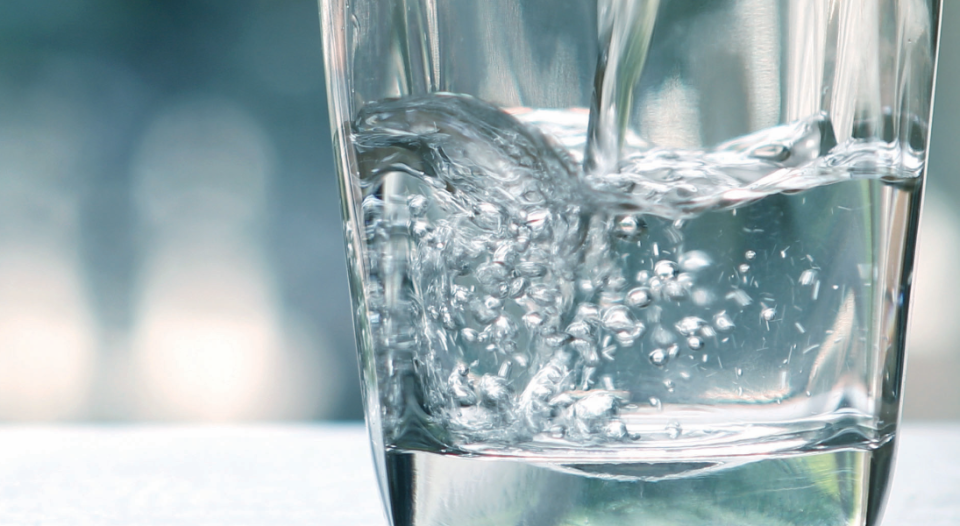About a decade ago the Coca-Cola Bottling Co. introduced a digital advertising campaign known as “The AHH Effect,” focusing on this global brand and the response drinkers should have when taking a sip: an audible “ahh.” That “ahh” was employed as a sound effect for games where Coke bubbles were moved around or ice cubes were thrown in a glass of Coke. If you’re thirsty, grab a bottle of cold water, twist the cap and take a swig. What do you say next?
What is “ahh!”?
It’s not a word. It’s sort of a natural groan of relief and satisfaction after taking a gulp, better than the Big Gulp at 7-Eleven, to quench one’s thirst.
Have you ever been dying of thirst, grabbed a bottle of water, twisted off the cap and taken a swig? You swallow, and then you say, “Ahh.”
Or you say, “Aaaaaahhhhh!”
Do you suppose the “ahh effect” is in play in John 4, which tells the story of Jesus talking to the woman at the well?
Jesus knew that the well was the Grand Central Station of its community, where conversation and gossip were greater than in the National Enquirer and encounters were more common than on Tinder. Wells were the meeting point for networking and political and civic conversations. Such was the case of Abraham’s unnamed servant (probably Eliezer) who finds Isaac’s future bride, Rebekah, at a well, using the pickup line “Please let me sip a little water from your jar” (Genesis 24:17).
Jesus knew all about water; his first recorded miracle in Cana, two chapters previous, concerns the transformative effect of water. Jesus would have witnessed his mother and countless other women spending hours hauling water for cooking, cleaning and drinking. He had a special affinity for these women, who probably traveled far into a village that had a well or cistern.
He’s prepared to give her much more than a simple cup of water. He will offer her something that will remove her thirst forever.
The woman of Samaria knew that the hottest part of the day, when most were taking a siesta, was the only time she could have a chance to get some water.
That day she encounters something far greater than an exclusive conversation with Barbara Walters. She is astonished that Jesus has approached the well, alone and ostensibly to satisfy his thirst. Yet he has nothing to retrieve the water! Something’s fishy; it doesn’t add up. “Sir, you have no bucket, and the well is deep. Where do you get that living water?” (John 4:11).
Jesus, the one John describes as the Logos, has a vulnerable moment and admits that he is parched. He is very direct and knows what will ease his thirst: “Give me a drink,” he says to the Samaritan woman. This is one of the few times we hear Jesus request something from another person. He needs something that she can provide.
At that moment it doesn’t matter that he’s the Son of God, the world’s Savior, a man in a male-oriented society or a Jew encountering someone from the ethnically disparaged Samaritans. All the barriers and differences—like gender and nationality—that might divide them fall away. Jesus is simply a person with a basic human need, and this woman can help him. She can give him water.
So Jesus had his “ahh” moment too.
Ahh! Refreshing!
John never tells us if Jesus gets that cup of water, because something much more important is going on. We don’t know if this unnamed woman took the time to draw water for Jesus. We know that she stops what she’s doing long enough for him to open up a world of new possibilities for her—a woman weighed down by guilt and shame.
He’s prepared to give her much more than a simple cup of water. He will offer her something that will remove her thirst forever. Jesus knows exactly who this woman is and can see the painful secrets of her heart.
Jesus recognizes her thirst for forgiveness and acceptance by affirming that he can give her “living water” to heal her Spirit and ease the pain in her heart.
Jesus recognizes her thirst for forgiveness and acceptance by affirming that he can give her “living water” to heal her Spirit and ease the pain in her heart.
There’s no way the woman at the well could visualize how refreshing this water is. He offers her the gift of God’s life-giving Spirit, water that wells up to eternal life for God’s people. This is the most refreshing gulp in human history. Refreshing!
A sip of this water transforms the Samaritan woman’s life. She’s so excited that she wants to share the good news. Read the label: all that and more is contained in the “living water” Jesus offers us.
In this Lenten season, let us be like this woman of Samaria being afforded the grace of living water. Despite our sinful nature, let us resolve not to keep our own transformation and encounter with Jesus to ourselves.
Take a sip of this water and then say, “Ahh!”






